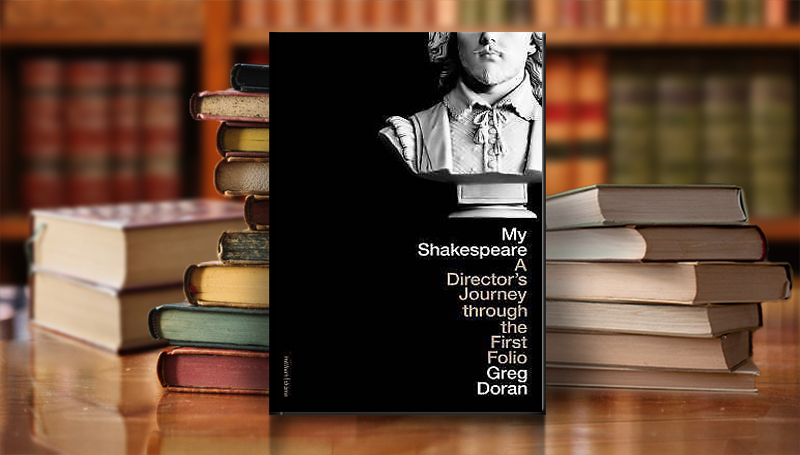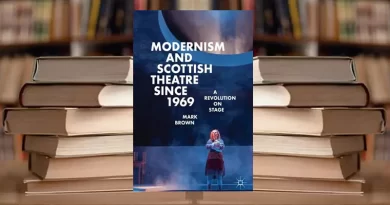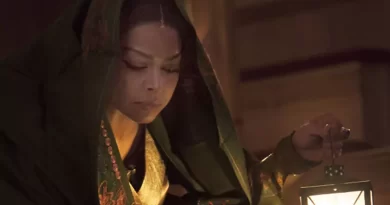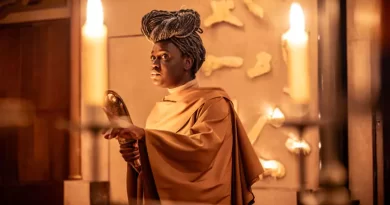“My Shakespeare” by Greg Doran
My Shakespeare: A Director’s Journey through the First Folio by Greg Doran (Methuen Drama)
Book review by Tom Bolton
Covid and its aftermath felt like an era shift for the Royal Shakespeare Company. In 2020, for the first time since 1879, there was no summer season at Stratford-upon-Avon as theatre across the globe temporarily ceased to exist. It would take three years to return to a pre-pandemic programme. In the meantime, Artistic Director Gregory Doran had stepped down, following the death of his husband and the RSC’s lead actor, Sir Antony Sher. In the circumstances, publishing a book is an achievement, but Doran’s account of his life in Shakespeare is more than that. It is an inspiring piece of writing that reveals Doran’s complete commitment to Stratford, Shakespeare, and the stage, while remaining overwhelmingly modest. It leaves me thinking that we have underestimated a director, who should rank alongside the Stratford legends who first drew him into theatre.
Doran’s all-encompassing fascination with Shakespeare defines the book and his career. As a Lancashire schoolboy, a trip to Stratford to see Richard Pasco and Ian Richardson role-swapping in Richard II had him hooked for life, and he was soon playing Richard himself on the school stage and hitchhiking down the M6 to see shows. He joined the RSC as an actor in 1987, falling for Antony Sher while playing opposite him in The Merchant of Venice, the start of a 28-year relationship. They married in 2005, on the first day civil partnerships between same-sex couples became legal.
While Sher became an acting legend, Doran soon moved into directing. His first RSC show was his 1996 Henry VIII, and he went on to direct almost the entirety of Shakespeare’s First Folio (apart from The Two Gentlemen of Verona). The plays provide My Shakespeare with its structure, as Doran devotes a chapter to each play from his first ever production aged 20, Romeo and Juliet in 1979, to his 2022 Richard III with Arthur Hughes. He achieves several things at once, producing a fascinating memoir of a theatrical era, an extensive study of Shakespeare through textual analysis, and a moving account of his relationship with Sher.
For Stratford watchers, the book is essential. Doran packs it with insightful and often very funny anecdotes. He recalls being grilled by some humourless Americans about the appropriateness of presenting a play “where a husband drugs his wife and makes her submit to bestial intercourse with a donkey” (A Midsummer Night’s Dream, naturally). He recalls the spell-binding moment when Sher, as Shylock, addressed his “pound of flesh” speech to the apartheid South African cultural attaché, squirming inches away in his front-row seat. He tells us how Michael Pennington agreed to replace Alan Bates in the title role of Timon of Athens at two weeks’ notice. We discover that when David Tennant’s Hamlet opened for booking at the Novello Theatre in 2008, selling out in ten minutes, calls to the box office accounted for 10 per cent of the UK’s telephone network capacity. If you find this sort of theatrical detail fascinating, My Shakespeare will keep you very happy.
Doran is not someone to blow his own trumpet. He is fully committed to his productions, but freely admits when he did not achieve what he wanted, or the press hated the result. He also acknowledges the company’s ups and downs. He experienced the near meltdown in the early 2000s when Adrian Noble pulled the company out of its permanent London base at the Barbican, before resigning. Doran too has received criticism for, amongst other things, the quality of new writing, the failure to reopen the RSC’s third theatre, The Other Place, and the lack of a strong cohort of Shakespearean directors to provide a succession plan. However, the pressures Doran has worked under have greatly limited his room for manoeuvre, especially the continued lack of a London base, a problem that probably has no solution.
And he has delivered a roll call of great productions: Tennant in Hamlet, Patrick Stewart and Harriet Walter’s Antony and Cleopatra, Sher and Walter in Macbeth, Sher’s Falstaff and King Lear, and impressive lesser Shakespeares including Henry VIII, King John, and Timon of Athens. The live-streamed rehearsal performances of the Henry VI plays during the pandemic were brave, ground-breaking, and fascinating.
However, Doran does more than just account for his time at Stratford. He also provides us with a lifetime’s worth of textual analysis, packing the book with interpretation of the plays he directed. When he applied, successfully, for the Artistic Director job he set out to emphasize ‘Shakespeare’ in RSC, rather than the ‘Company’ of his predecessor, Michael Boyd. He begins rehearsals not with a read-through, but an exploration of the text as the cast paraphrases each other’s parts to understand what the play is saying. Doran delights in this process, and it becomes clear how much he is influenced by the RSC’s company’s “grandparents” as he describes them, director John Barton and voice coach Cicely Berry. There is no greater tribute than to say that much of the book reminds me of the live workshops Barton sometimes conducted, which were rigorous, rich, rewarding, and unashamedly obsessed with the text.
Doran will be succeeded at Stratford by the duo of Daniel Evans and Tamara Harvey, both of whom have considerably less Shakespearean experience than him. This has led some to question whether the tradition of Barton and Berry, who essentially created the modern craft of Shakespearean performance, has ended. Doran says: “I have one special hope: that all those who come after me at the RSC will maintain the discipline and craftsmanship that Shakespeare demands.” His legacy to the company must surely be to establish the words that Shakespeare wrote as the RSC’s core rationale. After all, as he points out, “In Shakespeare’s day you went to ‘hear’ a play.”









